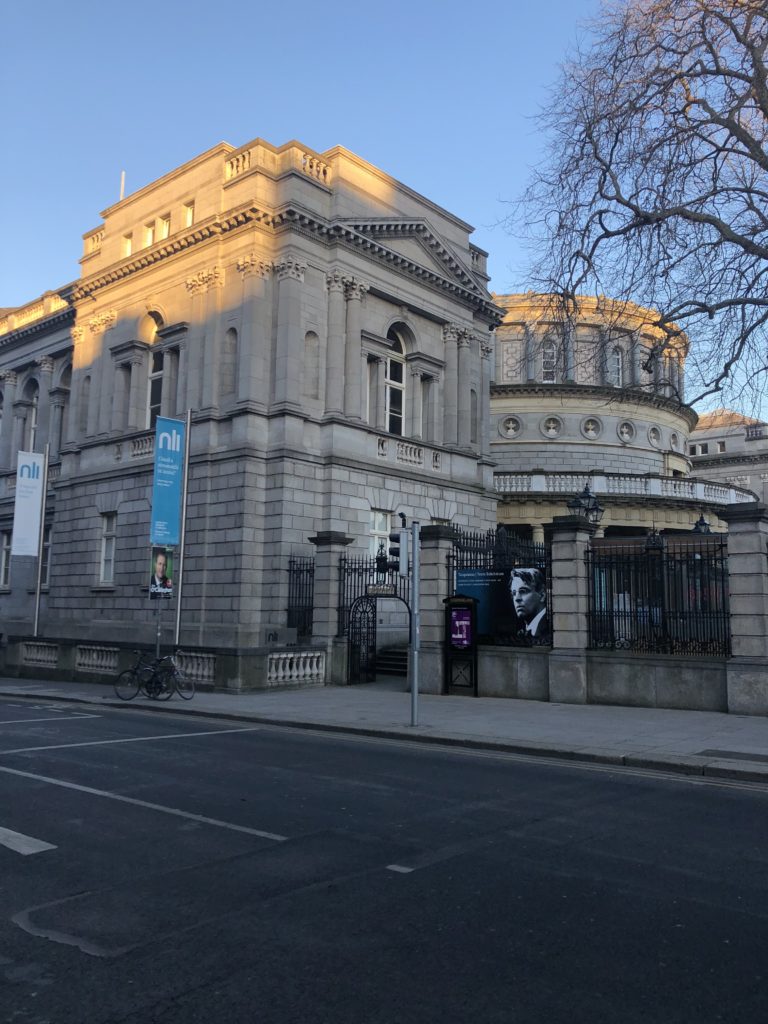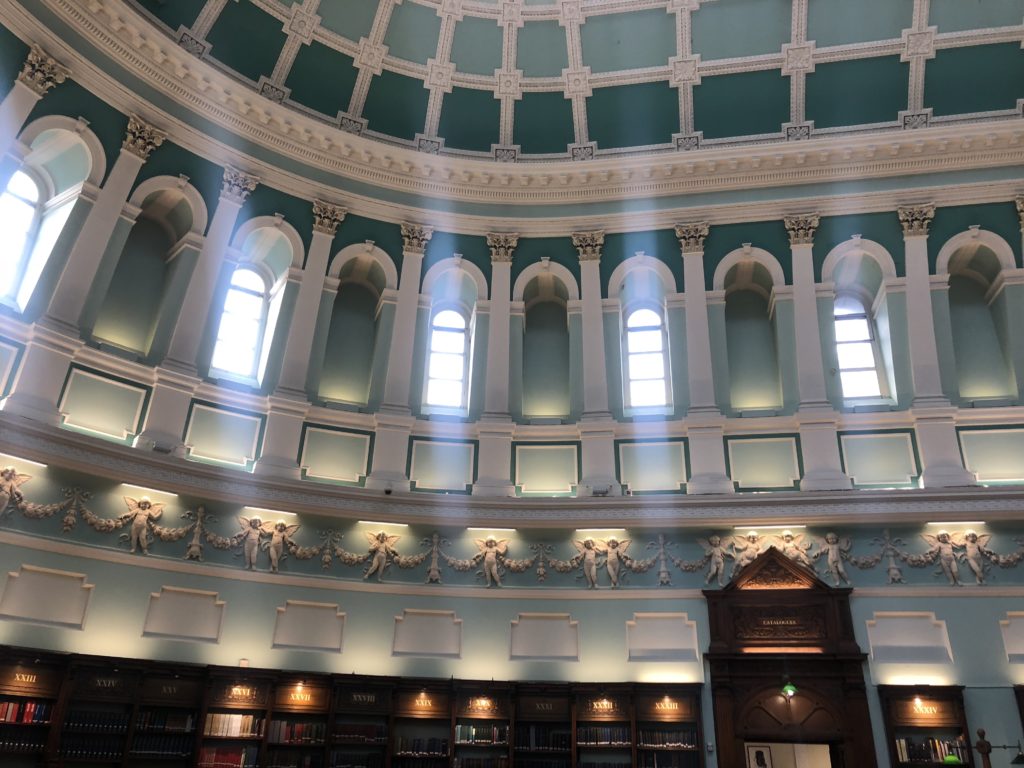In the past weeks, as efforts to curb the novel coronavirus pandemic placed most people across Europe and the United States under indefinite stay-at-home orders, and as I returned to Connecticut in anticipation of impending travel restrictions, I began to see images on social media of Irish houses and hedges draped with banners bearing the same Seamus Heaney quote:
“If we winter this one out, we can summer anywhere.”
The quote is from a 1972 interview associated with Heaney’s poetry volume Wintering Out, much of which alludes to the turmoil of the Northern Irish Troubles. Now, in a very different crisis, it seems many in Ireland are again finding in Heaney’s poetry what he called in a 1974 lecture, “images and symbols adequate to our predicament.”
This semester, I had a lot of time to think about Heaney during my internship at the National Library of Ireland. On Mondays and Thursdays, I took the bus from UCD to the city centre, getting off around the corner from the library’s dignified columned stone building.

As an intern in the Education, Learning, and Programming Department, I was working on several different projects. I was cataloguing the rare books, manuscripts, and objects on display in the permanent “W.B. Yeats: The Life and Works” exhibition and preparing a report with suggestions of curatorial changes to bring the exhibition up to date, particularly in its portrayal of the women with whom Yeats surrounded himself. I was working on a study guide for secondary school students related to the “Seamus Heaney: Listen Now Again” exhibition currently on display just down the street from the main library building at the Bank of Ireland Cultural Centre. And, I was conducting research in the library’s archives with the aim of writing and delivering a public lecture on Heaney’s relationship to Yeats. The lecture was to focus on how Heaney found in Yeats a model of the poet as someone who provides light in times of political darkness.
It is somewhat ironic that, as this topic seems even more prescient, my time working at the National Library has been forced to an early end. Certain aspects of my internship experience can’t be replicated as I shelter at home across the Atlantic. I will miss the impromptu office discussions with my colleagues about Irish history and politics, and I will no longer be able to hold Yeats’ original unpublished letters in my hands. But I am doing my best to complete what aspects of my projects can be done from a distance, including recording a virtual version of my talk. I am optimistic I will one day find myself back under the luminous windowed blue dome of the Main Reading Room, one of my favorite places in Dublin.

For now, I am keeping in mind Heaney’s famous last words, sent in a text to his wife from his hospital bed:
“NOLI TIMERE”
—or, translated from the Latin, “Do not be afraid.”
